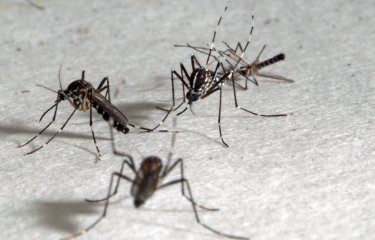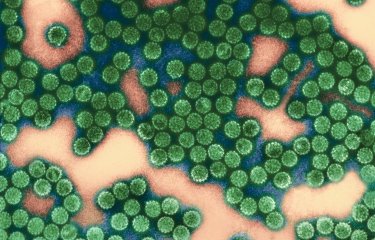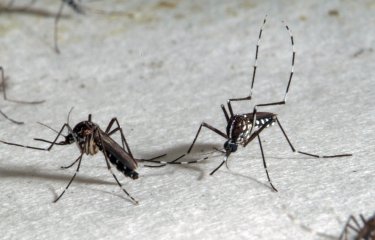Flaviviruses are pathogens transmitted by ticks that can cause serious diseases including neurological disorders. A study conducted at the Institut Pasteur reveals how these viruses can slip between the cracks of immunity.
Flaviviruses are pathogens transmitted by vectors, either insects like mosquitoes or arachnids like ticks. In Europe, the tick is the vector that transmits the most viral diseases, especially tick-borne encephalitis, which causes neurological disorders. The viruses can be transmitted directly through bites, but they can also infect livestock like goats and then spread to human populations when they consume raw milk cheese. "The most recent outbreak in France started in a cheese dairy in the Ain department in spring 2020," explains Nolwenn Jouvenet, Head of the Institut Pasteur's Virus Sensing and Signaling Unit. "So we need to monitor the viruses responsible for such outbreaks closely." Flaviviruses are a major public health challenge in temperate regions, including the United States, where we are already seeing an upsurge in the diseases they cause.
A protein that blocks an immune pathway
The viruses are also capable of evading the innate immune system, our body's first line of defense. Although this phenomenon has already been investigated for mosquito-borne flaviviruses, the evasion mechanism for tick-borne flaviviruses was not previously known. "These viruses encode 10 proteins, including the NS5 protein. We discovered that this protein interacts with an enzyme that plays a very important role in innate immunity," explains Ségolène Gracias, an engineer in the unit led by Nolwenn Jouvenet and first author of the study. "Although the NS5 protein in mosquito-borne flaviviruses is also capable of countering the immune response, it does so by targeting a different cellular protein. So this study revealed a novel evasion mechanism."
By binding to an enzyme, the NS5 protein blocks a cascade of reactions that normally results in the production of interferons, molecules that signal the presence of a virus to cells and prevent its replication. Understanding this process is a crucial step in tackling tick-borne flaviviruses. "We hope that this discovery will guide a vaccine strategy, for example the development of a live attenuated vaccine encoding a modified NS5 protein that is incapable of inhibiting the interferon response," continues Nolwenn Jouvenet. This type of vaccine, already used against the flavivirus responsible for yellow fever, is highly effective in conferring protection. "Characterizing the interactions between viruses and cells will ultimately enable us to improve our therapeutic toolkit."
This study is part of the priority scientific area Emerging infectious diseases of the Institut Pasteur's strategic plan for 2019-2023.
Source
Tick-borne flavivirus NS5 antagonizes interferon signaling by inhibiting the catalytic activity of TYK2, EMBO Reports, October 20, 2023 – https://doi.org/10.15252/embr.202357424





